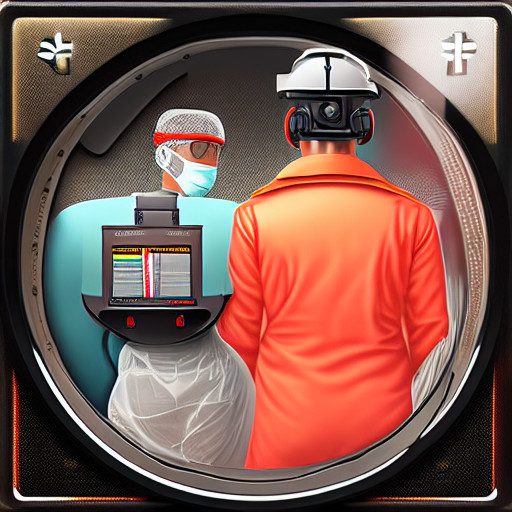Surgery is an intricate process that requires precision, care, and specialized tools. Surgical supplies and surgical instruments are essential components in the field of surgery. These tools and supplies are used to perform a variety of surgical procedures, ranging from minor outpatient surgeries to complex open-heart surgeries. In this article, we will discuss the different types of surgical supplies and instruments used in surgery, their importance, and how they are used.
Types of Surgical Supplies
Surgical supplies are used in a variety of surgical settings, including hospitals, clinics, and surgical centers. These supplies can range from basic items such as gloves and gowns to more specialized supplies like sutures and staplers. Some of the most commonly used surgical supplies include:
- Gloves: Gloves are an essential component of surgical procedures. They are used to protect the patient and the surgical team from the transmission of infections and to maintain a sterile environment during surgery.
- Gowns: Gowns are worn by the surgical team to protect themselves and the patient from the transmission of infections. They are designed to be sterile and are worn during surgery to maintain a clean environment.
- Masks: Masks are worn by the surgical team to protect themselves and the patient from the transmission of infections. They are designed to cover the mouth and nose and are worn during surgery to maintain a sterile environment.
- Drapes: Drapes are used to create a sterile field around the surgical site. They are designed to prevent contamination of the surgical site and to maintain a sterile environment during surgery.
- Sutures: Sutures are used to close wounds after surgery. They are designed to hold the edges of the wound together and promote healing.
- Staplers: Staplers are used to close wounds after surgery. They are designed to hold the edges of the wound together and promote healing. They are commonly used in place of sutures for larger wounds.
Types of Surgical Instruments
Surgical instruments are specialized tools that are used to perform surgical procedures. They are designed to be precise, durable, and easy to clean. Some of the most commonly used surgical instruments include:
- Scalpels: Scalpels are used to make incisions during surgery. They are designed to be precise and minimize surrounding tissue trauma.
- Forceps: Forceps are used to grasp and hold tissue during surgery. They are designed to be precise and minimize surrounding tissue trauma.
- Scissors: Scissors are used to cut tissue during surgery. They are designed to be precise and minimize surrounding tissue trauma.
- Retractors: Retractors are used to hold back tissue during surgery. They are designed to provide a clear view of the surgical site and to minimize trauma to the surrounding tissue.
- Clamps: Clamps are used to hold tissue or blood vessels during surgery. They are designed to be precise and minimize surrounding tissue trauma.
- Probes: Probes are used to explore the surgical site and to locate structures such as blood vessels or nerves. They are designed to be precise and minimize surrounding tissue trauma.
Importance of Surgical Supplies and Instruments
Surgical supplies and instruments are essential components in the field of surgery. They are designed to provide a sterile environment, prevent the transmission of infections, and promote healing. The importance of surgical supplies and instruments cannot be overstated, as they are critical to the success of surgical procedures.
In addition to their importance in maintaining a sterile environment, surgical supplies, and instruments are also essential in promoting patient safety. By using high-quality, well-maintained instruments and supplies, healthcare professionals can reduce the risk of complications during surgery and improve patient outcomes.
How Surgical Supplies and Instruments are Used
Surgical supplies and instruments are used in a variety of surgical procedures, each with its unique requirements. Before surgery, the surgical team will prepare the surgical site by cleaning and disinfecting the area and covering it with sterile drapes. Once the site is prepared, the surgical team will use surgical instruments to make incisions, manipulate tissue, and perform other necessary tasks.
During the procedure, the surgical team must maintain a sterile environment to prevent the transmission of infections. This involves wearing sterile gloves, gowns, and masks, and using sterile instruments and supplies. The team must also work carefully and precisely to minimize trauma to the surrounding tissue and ensure the best possible outcome for the patient.
After the procedure, the surgical team will carefully close the wound using sutures or a stapler. They will then clean and disinfect the area and apply dressings to protect the wound as it heals.
Maintaining Surgical Supplies and Instruments
Surgical supplies and instruments must be properly maintained to ensure their effectiveness and safety. This includes cleaning and sterilizing instruments after each use, storing supplies in a clean, dry environment, and regularly inspecting instruments for damage or wear.
Regular maintenance and inspection of surgical supplies and instruments are essential to prevent equipment failures, reduce the risk of infection, and ensure the safety of patients and healthcare professionals.
We are your trusted source when you need surgical supplies and medical equipment surgical supplies and medical equipment, we are your trusted source.
Conclusion
Surgical supplies and instruments play a critical role in the field of surgery. They are essential components in maintaining a sterile environment, promoting patient safety, and ensuring the best possible outcomes for patients. Healthcare professionals must carefully and precisely use these tools and supplies to minimize trauma to the surrounding tissue and promote healing. Proper maintenance and inspection of these supplies and instruments are also critical to ensure their effectiveness and safety. By using high-quality, well-maintained instruments and supplies, healthcare professionals can reduce the risk of complications during surgery and improve patient outcomes.

